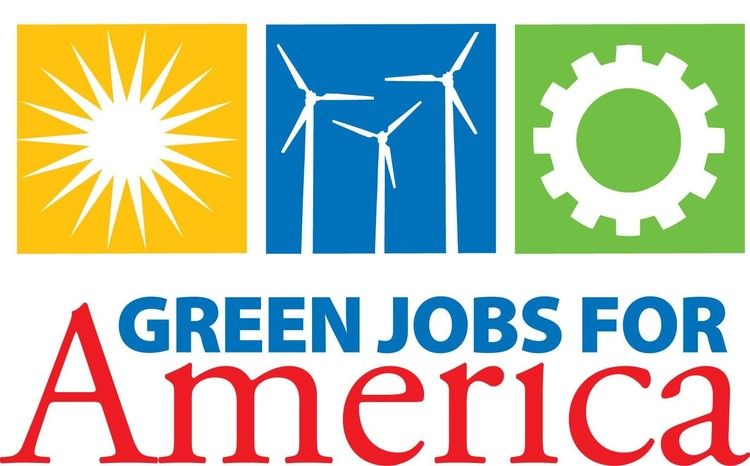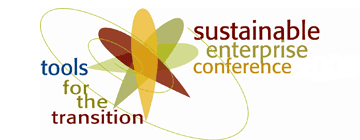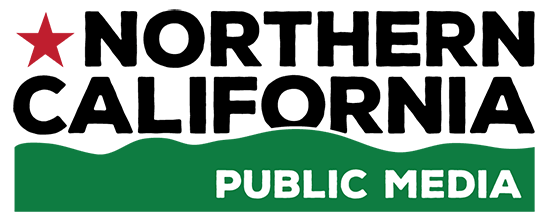 As the US economy struggles to climb out of the current downturn, there's a new emphasis on creating "green-collar" jobs which could be especially beneficial to California. {mp3remote}http://media.krcb.org/audio/nbr/5-7-09.mp3{/mp3remote}
As the US economy struggles to climb out of the current downturn, there's a new emphasis on creating "green-collar" jobs which could be especially beneficial to California. {mp3remote}http://media.krcb.org/audio/nbr/5-7-09.mp3{/mp3remote}
 Ian Kim (left) works at the Ella Baker Center for Human Rights as Director of the Green-Collar Jobs Campaign. He advocates for policies in the city of Oakland and statewide in California to create "green-collar" jobs (quality, career-track, manual labor jobs in industries like renewable energy, water and energy efficiency, and green building), especially for low-income young adults and those with barriers to employment. Ian holds an MBA from the Yale School of Management. He will be one of the keynote speakers at this year's Sustainable Enterprise Conference May 8 at Sonoma Mountain Village in Rohnert Park.
Ian Kim (left) works at the Ella Baker Center for Human Rights as Director of the Green-Collar Jobs Campaign. He advocates for policies in the city of Oakland and statewide in California to create "green-collar" jobs (quality, career-track, manual labor jobs in industries like renewable energy, water and energy efficiency, and green building), especially for low-income young adults and those with barriers to employment. Ian holds an MBA from the Yale School of Management. He will be one of the keynote speakers at this year's Sustainable Enterprise Conference May 8 at Sonoma Mountain Village in Rohnert Park.
 Tickets are still available for event, using this downloadable registration form.
Tickets are still available for event, using this downloadable registration form.
The availability of funding for green jobs is a tremendous opportunity, says Ian Kim, but with that comes a new set of challenges.
{mp3remote}http://media.krcb.org/audio/nbr/implementation.mp3{/mp3remote} The Oakland-based Ella Baker Center for Human Rights runs cutting-edge, solutions-driven campaigns for justice, peace and opportunity in our cities. The nationally-renowned Green-Collar Jobs Campaign works to leverage the explosive growth of the new green economy to create meaningful career opportunities for poor people and people of color. Statewide, the Campaign advocates for green-collar policy solutions for California, in partnership with major labor, environmental, business, and education institutions, that can create many thousands of good jobs as well as a strong infrastructure for green workforce development.
The Oakland-based Ella Baker Center for Human Rights runs cutting-edge, solutions-driven campaigns for justice, peace and opportunity in our cities. The nationally-renowned Green-Collar Jobs Campaign works to leverage the explosive growth of the new green economy to create meaningful career opportunities for poor people and people of color. Statewide, the Campaign advocates for green-collar policy solutions for California, in partnership with major labor, environmental, business, and education institutions, that can create many thousands of good jobs as well as a strong infrastructure for green workforce development.

Nationally, the Campaign played a central role in the passage of the federal Green Jobs Act of 2007, which authorizes 5 million annually for green job training, with million specifically allocated to "pathways out of poverty" programs.
It worked in Napa. Now a youth-led service center for young people aging out of foster care has launched a second outlet in Santa Rosa.
{mp3remote}http://media.krcb.org/audio/nbr/5-6-09.mp3{/mp3remote}
Mitch Findley helps move office furniture into the new V.O.I.C.E.S. office in Santa Rosa.
Only recently have the needs of youth aging out of Foster Care gotten much public attention. But the high rates of homelessness, unemployment and early parenthood create additional demand on public social service systems that are already overburdened. So proactive alternatives such as V.O.I.C.E.S. are garnering widespread attention.

When V.O.I.C.E.S first opened their doors in Napa, Mitch Findley (left) says they had to learn how to define and explain themselves to the community around them. By now, they've gotten pretty good at it.
{mp3remote}http://media.krcb.org/audio/nbr/explain.mp3{/mp3remote}Learn more about Voices here.
V.O.I.C.E.S. Sonoma County
335 College Ave
Santa Rosa, CA 94509
Phone: 707-579-4327
 There's more to the story of pirates along the Somali coast than just bad guys in boats. In today's report, John Reid, President of the Conservation Strategy Fund in Sebastopol, looks past recent headlines to the root causes of this outbreak of nautical lawlessness.
There's more to the story of pirates along the Somali coast than just bad guys in boats. In today's report, John Reid, President of the Conservation Strategy Fund in Sebastopol, looks past recent headlines to the root causes of this outbreak of nautical lawlessness.
 Because natural resources are essential to the survival of millions of residents of undeveloped nations, CFS President John Reid (right) predicts that, in order to help preserve them, climate change will soon become a major factor in shaping US foreign policy.
Because natural resources are essential to the survival of millions of residents of undeveloped nations, CFS President John Reid (right) predicts that, in order to help preserve them, climate change will soon become a major factor in shaping US foreign policy.

Michael Winship, senior writer for the weekly PBS public affairs program "Bill Moyers Journal," has additional background on this issue here.
 KRCB's North Bay Report has won an Excellence in Media award from the California Teachers Association, for a report last April on peer-driven non-violence training for junior high school students. Today we reprise that award-winning report.
KRCB's North Bay Report has won an Excellence in Media award from the California Teachers Association, for a report last April on peer-driven non-violence training for junior high school students. Today we reprise that award-winning report.
 Rick Phillips (left) is the creator and leading advocate for the Safe School Ambassadors program, which is a project of the Sebastopol-based non-profit, Community Matters.
Rick Phillips (left) is the creator and leading advocate for the Safe School Ambassadors program, which is a project of the Sebastopol-based non-profit, Community Matters.

This story, which originally aired last April, has been honored with a 2009 John Swett Award for Excellence in Media by the California Teachers Association.
 Organic farming is hardly a novelty any more in Northern California, but that's only one way this kind of agriculture has changed over the past 30 years.
Organic farming is hardly a novelty any more in Northern California, but that's only one way this kind of agriculture has changed over the past 30 years.
Jeff and Annie Mains and their Good Humus Farm in Yolo County are one of the quintet of family farms featured in the new 5-part public radio series, Five Farms. There's more about the series below.
 Having spent three decades as an organic farmer, Jeff Mains has seen that business model undergo some big changes, a transformation that leaves his more than a little uneasy.
Having spent three decades as an organic farmer, Jeff Mains has seen that business model undergo some big changes, a transformation that leaves his more than a little uneasy.
{mp3remote}http://media.krcb.org/audio/nbr/organic.mp3{/mp3remote}
 Flowers, fruit, tomatoes and an array of other brightly colored produce are on display at the Good Humus Farm booth at the Davis Farmers market, which Annie Mains helped establish as a student in the 1970s.
Flowers, fruit, tomatoes and an array of other brightly colored produce are on display at the Good Humus Farm booth at the Davis Farmers market, which Annie Mains helped establish as a student in the 1970s.
Counterbalancing the industrialization of organic farming is the mounting interest in sustainability and local sourcing for food. That's what gives Jeff his optimism about the future.
{mp3remote}http://media.krcb.org/audio/nbr/grassroots.mp3{/mp3remote}
'FIVE FARMS: STORIES FROM
AMERICAN FARM FAMILIES'
Most Americans know little about where their food comes from and even less about the lives of farming families who plant, water, feed, herd, harvest and deliver that food to market. "Five Farms: Stories From American Farm Families" confronts that information gap head on. This remarkable series of five one-hour documentaries uses compelling first-person storytelling to personalize the lives and work of five farm families in New England, the South, the Midwest, the Southwest and West Coast. By tracking these families for a full year-long cycle of the seasons, "Five Farms" reveals the resiliency of the American farmer and documents what they do to help feed the nation, while being caretakers and conservationists of the lands and resources they use. "Five Farms" profiles people who work hard and make considerable sacrifices, but who can also flourish, and for whom the benefits - including a deep understanding of the land they work - are rich.
William MacLeish introduces each episode of this powerful series, helping listeners make the critical connection between the food on their tables and families who work to produce it.

 Live Radio
Live Radio